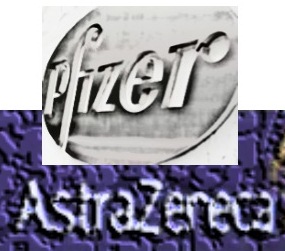The Offshore Wrapper: A week in tax justice
The Offshore Wrapper is written by George Turner
The big news in big business this week is the rumored takeover of AstraZenexa by Pfizer, said to be worth over $100bn. Among the main reasons analysts have cited for this deal is that the takeover allows Pfizer to use its giant offshore cash pile.
A report from Bloomberg last month showed that the US drugs giant is the second largest cash hoarder, with $73bn stashed offshore.
The US has one of the highest corporate tax rates in the world at 35%, which means that Pfizer would have to pay tens of billions of dollars if they onshored these cash reserves to the US. Pfizer’s SEC filings show that they have a $19bn deferred tax liability from earnings made elsewhere but not repatriated to the US.
So in effect anywhere between 20-30% of the value of this takeover is being subsidised by the US taxpayer. Another corporate welfare case study for our files.
Tax incentives break Sierra Leone
Massive tax incentives for big business is not just a rich world phenomenon. A report from Christian Aid released last week shows the staggering amount of revenue lost by the west African nation through tax breaks to mining firms and agribusiness.
The Guardian reports that tax breaks for just 6 companies amounted to the equivalent of an astonishing 59% of the entire government budget.
Still, you have to think that if Sierra Leone didn’t give away these tax breaks the companies would probably go somewhere else, like Mauritius, the Cayman Islands, Jersey or Ireland. All well known for their vast deposits of diamonds, minerals, and with vast areas of fertile farmland.
The UK government has just reconfirmed its intention to end secret companies by introducing a public register of beneficial ownership. Under the proposed rules companies will have to disclose any change ownership holding of more than 25%. This move has been widely praised by anti-corruption campaigners.
It may even prevent dead people signing off on UK company accounts! Whether the measure extends to trusts though is not so clear. Her Majesty’s government seems to think that trusts can be divided into low risk and high risk: quite who will call judgement on which is which is not so clear, but we detect a major loophole in the making. Watch this space.
Nigeria seeks help
Nigeria finance minister, Dr. Ngozi Okonjo-Iweal announced at a recent press conference that Nigeria and other African countries have asked the IMF and the World Bank to help them stem illicit financial flows.
As pointed out by the minister and reported frequently by the Wrapper, the continent loses $50bn a year to illicit financial flows.
Nigeria is asking for capacity building and help in putting pressure on countries receiving illicit financial flows.
Good luck with that. After all, the World Bank’s policy on offshore financial centres uses the OECD Global Forum list, which deems places such as the Isle of Man, Jersey and Mauritius as largely compliant. Even non-compliant countries like the British Virgin Islands are allowed a grace period to clean up under World Bank rules.
The minister might also want to have a word with her president, Goodluck Jonathan. He recently fired the governor of the Nigerian Central Bank for alleging that $20bn of the country’s oil revenue had gone missing.
Starbucks smells the profits
Global coffee giant Starbucks is to move its European headquarters to the UK. The company has said that this will mean that the company pays more tax in Britain. However, as the Guardian points out, the current European headquarters based in the Netherlands has been loss making for years.
Finally, a brief update for Wrapper readers on the location of our favourite ship, the Capo San Lorenzo!
This giant containership registered in that plucky maritime state, Luxembourg has just made it to the port of Rio Grande. With every nautical mile, the Capo San Lorenzo opens a new page in Luxembourg’s great maritime history which the Wrapper is simply honour bound to record.








Leave a Reply